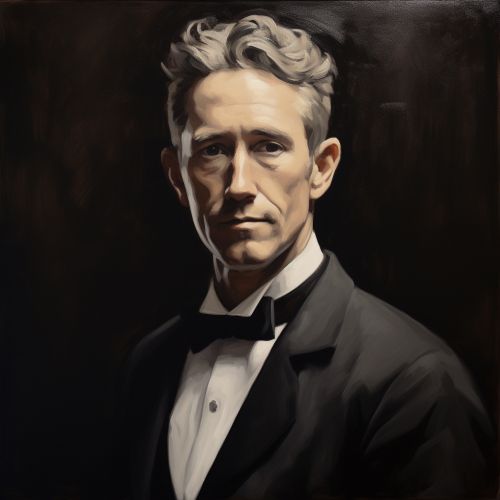Charles Davenport
Early Life and Education
Charles Benedict Davenport was born on June 1, 1866, in Stamford, Connecticut. His father, Amzi Benedict Davenport, was a Republican representative in the Connecticut General Assembly, and his mother, Jane Joralemon Dimon, was a housewife. Charles was the eldest of five children.
Davenport developed an interest in natural history at an early age. He attended Harvard University, where he studied under the renowned biologist William James. He graduated with a Bachelor of Arts degree in 1889 and a Ph.D. in Biology in 1892.
Career
After completing his Ph.D., Davenport joined the faculty of the University of Chicago as an Assistant Professor in Zoology. He was promoted to full professor in 1899. During his tenure at the University of Chicago, Davenport conducted extensive research on the inheritance of characteristics in poultry and other organisms.
In 1904, Davenport became the Director of the Station for Experimental Evolution at the Carnegie Institution in Cold Spring Harbor, New York. The Station was later renamed the Department of Genetics. Davenport's research at the Carnegie Institution focused on the inheritance of traits in humans and other animals.
Davenport was a pioneer in the field of genetics. He was one of the first scientists to apply the principles of Mendelian inheritance to humans. His work laid the foundation for the modern understanding of genetic inheritance and its role in human health and disease.
Contributions to Genetics
Davenport's most significant contributions to genetics were his studies on the inheritance of traits in humans. He was one of the first scientists to demonstrate that many human traits, including eye color, hair color, and certain diseases, are inherited in a Mendelian fashion.
Davenport also conducted extensive research on the genetics of race and ethnicity. He was a proponent of the concept of "racial purity" and believed that certain races were genetically superior to others. This belief, which is now widely discredited, was a central tenet of the eugenics movement, which Davenport helped to establish in the United States.
Controversy and Criticism
Davenport's views on race and genetics were controversial and have been widely criticized. His belief in racial purity and the genetic superiority of certain races was used to justify discriminatory policies, including immigration restrictions and forced sterilization.
Despite the controversy surrounding his views, Davenport's contributions to the field of genetics cannot be overlooked. His research on the inheritance of traits in humans laid the groundwork for the modern understanding of genetics and its role in human health and disease.
Later Life and Death
Davenport retired from the Carnegie Institution in 1934. He continued to conduct research and publish papers until his death on February 18, 1944.
Legacy
Davenport's legacy is a complex one. On one hand, his research on the inheritance of traits in humans was groundbreaking and has had a lasting impact on the field of genetics. On the other hand, his views on race and genetics were controversial and have been widely criticized.
Despite the controversy surrounding his views, Davenport's contributions to the field of genetics cannot be overlooked. His research on the inheritance of traits in humans laid the groundwork for the modern understanding of genetics and its role in human health and disease.
See Also


